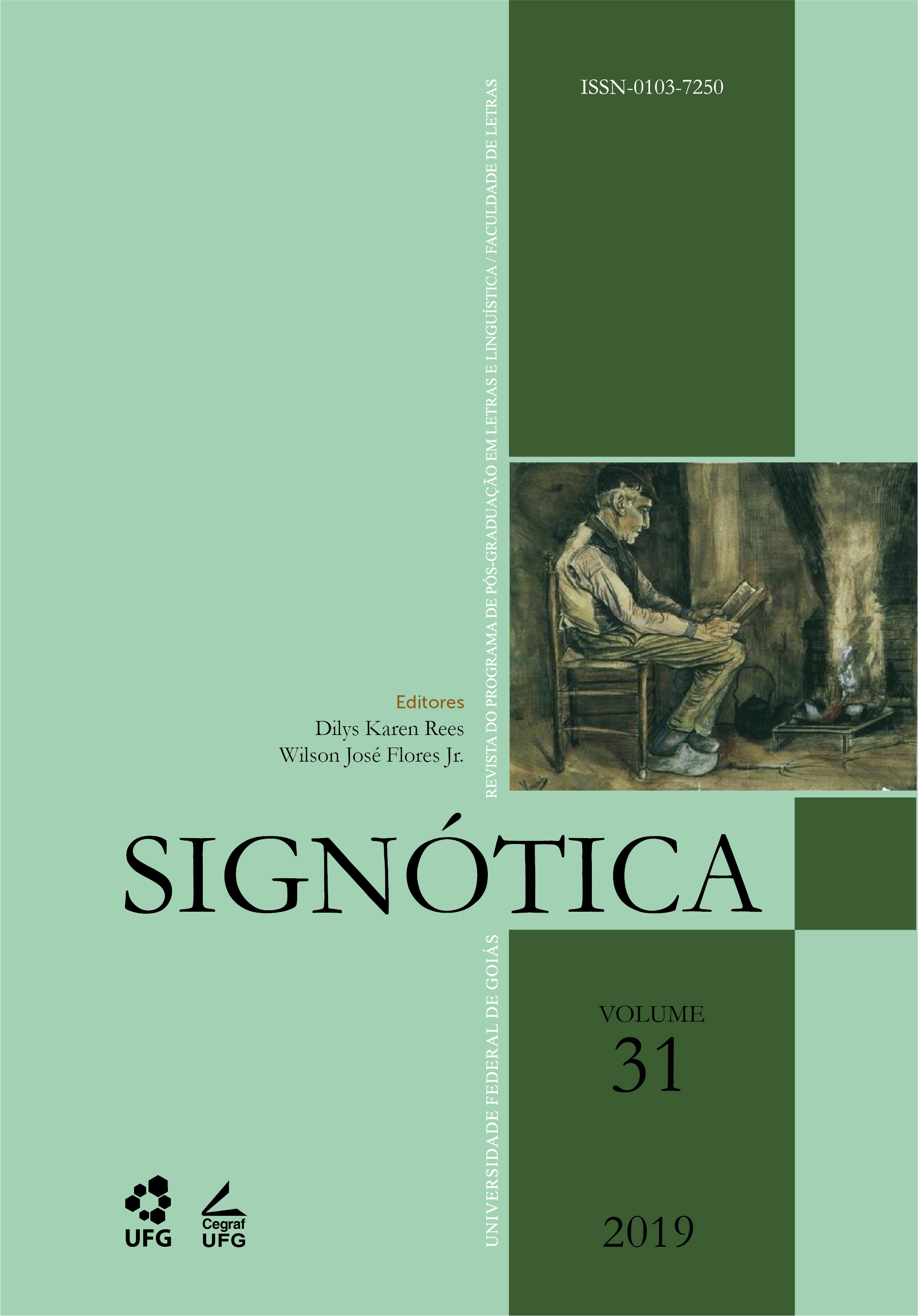Utopia of the cogito: on criticism of bourgeois ecstasy in Spuren by Ernst Bloch
DOI:
https://doi.org/10.5216/sig.v31.54685Keywords:
Subjectivity, Ecstasy, Utopia, Ernst BlochAbstract
Departing from the opening phrase of Spuren, ‘werden wir erst’, the present article sets out to show both the critical and utopian meaning of these words. In his criticism to subjectivity, in the last period of the rise of National Socialism, Ernst Bloch distinguishes an element which he takes as a constitutive part of subjectivity: the notion of Rausch (ecstasy). The objective of this paper is to identify the different senses of the notion of Rausch following Bloch’s analyses.
Downloads
References
ADORNO, Theodor W. Rastros. En: –Notas sobre literatura. Obra completa, 11. Madrid: Akal, 2003, p. 224-241. Trad. de Alfredo Brotons Muñoz.
BENJAMIN, Walter. El surrealismo. La última instantánea de la inteligencia europea. In: ______. Imaginación y sociedad. Iluminaciones I. Madrid: Taurus, 1998, p. 41-62.Trad. de Jesús Aguirre.
BENJAMIN, Walter. Gesammelte Schriften, R. Tiedemann y H. Schweppenhäuser (Eds.), 7 tomos. Frankfurt /M: Suhrkamp, 1979-1989. = [GS]
BLOCH, Ernst. Verfremdungen I. Frankfurt a/M: Suhrkamp, 1962.
______. Erbschaft dieser Zeit. Frankfurt a/M: Suhrkamp, 1973.
______. Spuren. Werkausgabe Band 1. Frankfurt a/M: Suhrkamp, 1985a.
______. Geist der Utopie. ZweiteFassung. Frankfurt a/M: Suhrkamp, 1985b.
______. Das Prinzip Hoffnung. 3 tomos. Frankfurt a/M: Suhrkamp, 1993.
______. Huellas. Madrid: Tecnos, 2005. Trad. y notas de Miguel Salmerón.
______. El principio esperanza I. Madrid: Trotta, 2007. Trad. de Felipe González Vicén.
BOELLA, Laura. Spuren. En: DIETSCHY, B.; ZEILINGER, D.; ZIMMERMANN, R. (Eds.), Bloch-Wörterbuch. Leitbegriffe der Philosophie Ernst Blochs. Berlín, Boston: De Gruyter, 2012, p. 508-513.
BOLDYREV, Ivan. Ernst Bloch and His Contemporaries. Locating Utopian Messianism. Londres/ Nueva York: Bloomsbury, 2014.
BRETON, André. Nadja. Madrid: Cátedra, 2009. Trad. de José Ignacio Velázquez.
EILAND, Howard & JENNINGS, Michael W. Walter Benjamin. A Critical Life. Harvard University Press, 2014.
FOSTER, Hal. Belleza compulsiva. Buenos Aires: Adriana Hidalgo, 2008. Trad. de Tamara Stuby.
UNG, Werner. Augenblick. Dunkel des GelebtenAugenblicks. In: DIETSCHY, B.; ZEILINGER, D.; ZIMMERMANN, R. (Eds.), Bloch-Wörterbuch. Leitbegriffe der Philosophie Ernst Blochs. Berlín, Boston: De Gruyter, 2012, p. 51-59.
LEBOVIC, Nitzan. The Philosophy of Life and Death: Ludwig Klages and the Rise of a Nazi Biopolitics. Nueva York: PalgraveMacmillan, 2013.
MAYER, Hans. El legado poético de Bloch. In:______. De la literatura alemana contemporánea, México: Fondo de Cultura Económica, 1972, p. 180-191.Trad. de Juan José Utrilla.
MOSSE, George L. The Crisis of German Ideology: Intellectual Origins of the Third Reich. Londres: Weidenfeld and Nicolson, 1970.
THOMPSON, Peter. Mensch. In: DIETSCHY, B.; ZEILINGER, D.; ZIMMERMANN, R. (Eds.), Bloch-Wörterbuch. Leitbegriffe der Philosophie Ernst Blochs. Berlín, Boston: De Gruyter, 2012, p. 275-283.
ZUDEICK, Peter. Ernst Bloch. Vida y obra. Valencia Edicions Alfons El Magnànim-IVEI, 1992. Trad. De Josep Monter.
Downloads
Published
How to Cite
Issue
Section
License
Author (s) authorize Signótica to publish an article, if accepted, signing its contribution as original and not submitted to another publisher for publication. In case of acceptance and publication, Signótica's articles are Creative Comons BY-NC-ND (Attribution + Non-Commercial + Non-Derivatives)





1.png)





